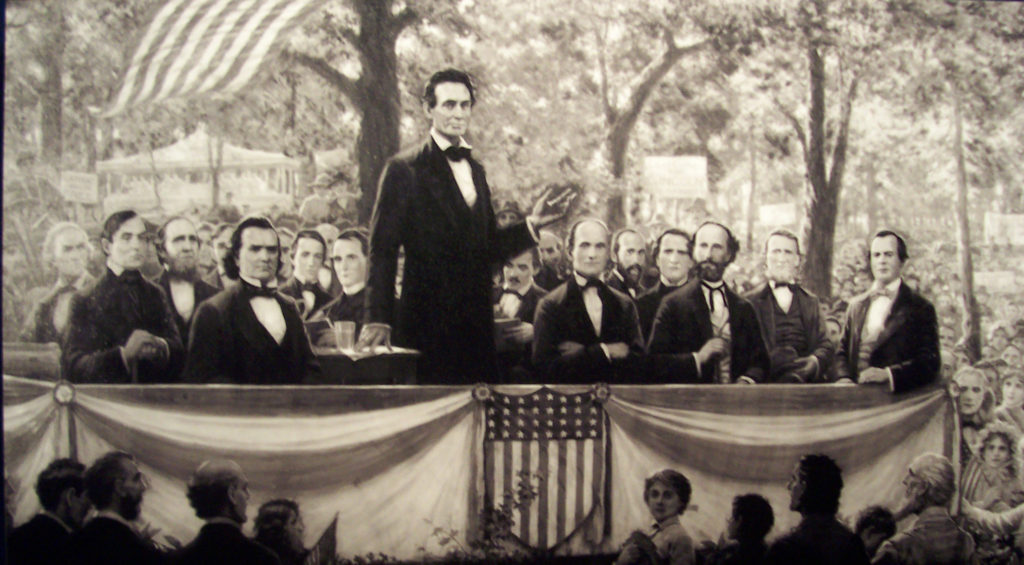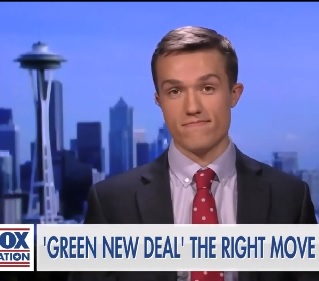


Can’t Live With Them, Can’t Live Without Them
Join us for the 6th Annual Chapman Center Luncheon!
We Need to Bring Back Real Debates in America
The televised Democratic presidential sound byte pageants will not be true debates by any realistic standard. They are reminiscent of the 2016 Republican primaries that started with 16 candidates preening on a platform and enduring “gotcha” questions by reporters/moderators trying to get themselves into the news story. Until the nominee field narrows, these shows are almost a parody of real debates in the Lincoln-Douglas or Oxford Union manner. That’s too bad. We need to bring back real debates in America, and not just among candidates. Name the issue (climate change, foreign interference in our elections, abortion, immigration, tariffs, privacy online, the future of artificial intelligence, the meaning of “free speech,” whatever): Americans are badly divided. Since media and politicians often …
Meet the 2019 Class of Chapman Fellows!
We are pleased to announce our 2019 Chapman Fellows: Savannah Bice – Finance Rotational Analyst, Microsoft (finance rotation program); extensive world travel; BS, Economics and Finance, Lindenwood University (active in DECA), St. Louis Jon Cantalini – Interim Executive Director, King County Republican Party; field coordinator, Dino Rossi for Congress, 2016; BA, Seattle University; former intern for Republican Attorneys General Association Jessie Gamble – Government Affairs Director, Master Builders Association of Pierce County; former president, UW College Republicans; Republican PCO in Carbonado Ryan Jewell – Brokerage Manager, Guardian Life; former insurance district sales manager; SPU alumnus (business and marketing major); interested in running for office in the future Jake Mayson – Legislative Assistant, Carney Badley Spellman LLC lobbying; former legislative assistant Read More ›
Bruce Chapman Guests on The Saul Spady Show

Chapman Fellowship Alum Benji Backer Appears on Fox News to Discuss Flaws of the “Green New Deal”
Darwin, Marx, and Something Called Political “Science”
The materialist influence of 19th-century thinkers still chills 21st-century thinking. It is true in biology, economics, culture, and government. In much of the popularization and misuse of the claims of natural science and in much of modern German philosophy, tendencies toward atheism and gnosticism (searching for hidden meanings) are found. So are economic determinism and a serene resolve to change human nature. It was considered foolish by many 19th- and early 20th-century intellectuals to believe in God or self-evident truths, but “advanced” to aspire to the perfectibility of man. Progress, you would have thought as an intellectual in that period, must proceed on “scientific” principles. Max Weber’s “fact/value” distinction meant that facts alone could be submitted to scientific inquiry, while issues of Read More ›
From Darwinism to Dataism: Will We Lose Our Representative Democracy to Techno-Religion?
Science fiction writers have long understood that when tyranny comes it often is introduced as some improvement, or as the correction of some perceived problem. C. S. Lewis, for example, warned of the therapeutic state that wants what is best for us, whether we ask for it or not. It starts as science, becomes scientism, then demands obedience. Jeremy Rifkin is a philosopher of Big Data in our own time who has a Marxist view of human good, organized in the “Commons,” whose space, according to his book “The Zero Marginal Cost Society: The Internet of Things, the Collaborative Commons, and the Eclipse of Capitalism,” is “more basic than both business and the market.” He writes that “The very purpose Read More ›
Remembering Eleanor Roosevelt Video Now Available
The Center for Citizen Leadership is presenting a unique film interview with Patricia Baillargeon, one of the last people to work directly with Eleanor Roosevelt in the varied and fast-paced last decade of Mrs. Roosevelt’s life. Read More ›
